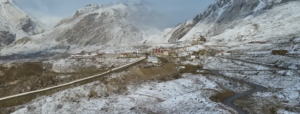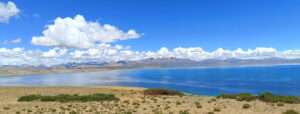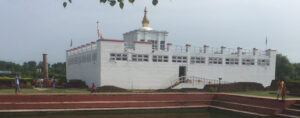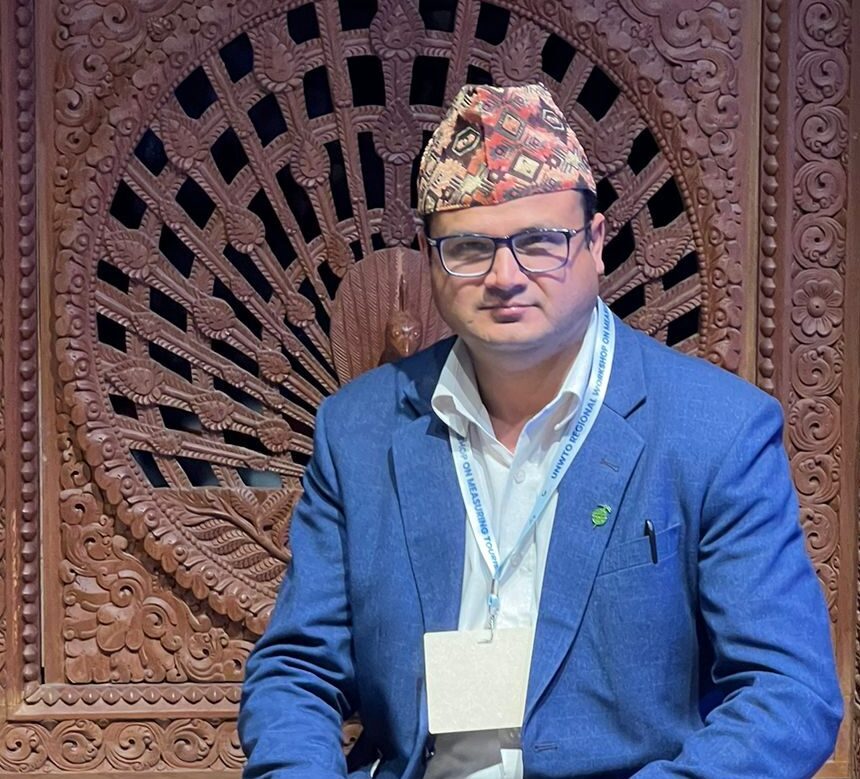Makwanpur, a picturesque region surrounded by towering mountains, lush valleys, and a rich cultural heritage, is a hidden gem waiting to be discovered. If you’re seeking an off-the-beaten-path adventure that combines nature’s beauty, captivating history, and warm hospitality, then Makwanpur should be your next destination.
While many travelers flock to the more well-known destinations in Nepal, Makwanpur remains a hidden gem waiting to be discovered. From serene hill stations to historic towns, this district has something for everyone seeking a unique and authentic travel experience.
Location and altitude of Makwanpur
Makwanpur District is located in the central part of Nepal. It falls within the Bagmati Province and is situated south of the capital city, Kathmandu. The district is known for its diverse geography, ranging from the foothills of the Himalayas to the Terai plains.
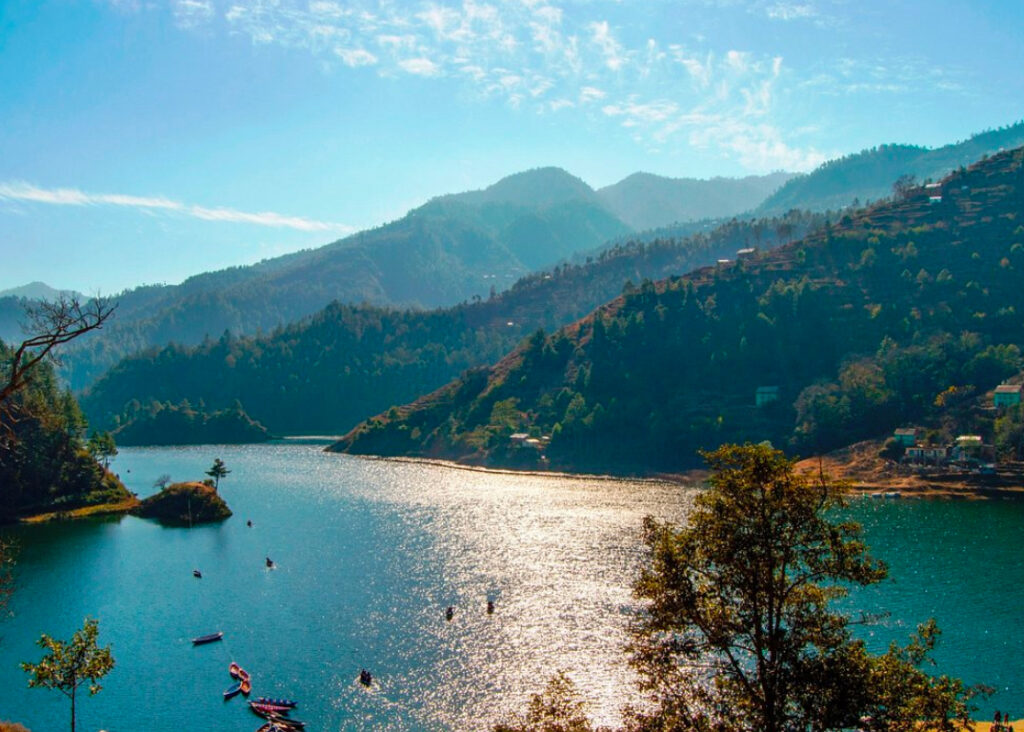
The district’s headquarters, Hetauda, is located at an altitude of around 345 meters (1131.89 feet) above sea level. The distance between Kathmandu, the capital of Nepal, and Hetauda, the headquarters of Makwanpur District, is approximately 82 kilometers (about 51 miles) in a straight line. However, the actual travel distance by road can be longer due to the winding mountain roads and various routes.
Major Attractions of Makwanpur
Let’s take a look into the major attractions that make Makwanpur an irresistible destination for adventurers and culture enthusiasts alike.
Paragliding Adventure in Makwanpur
Paragliding enthusiasts can unleash their wings and take flight above the scenic landscapes of Makwanpur.
Also Read: Major Attraction near Kathmandu: Nuwakot
Soar over Indrasarowar Lake, gaze upon terraced fields, and experience the district’s beauty from a perspective few get to witness. It’s an adventure that adds a thrilling dimension to your visit, allowing you to truly grasp the region’s natural splendor.
Hetauda: The Gateway to Makwanpur
As the district’s headquarters, Hetauda welcomes travelers with open arms. This bustling town is not only a gateway to Makwanpur but also an attraction in itself. Hetauda boasts a vibrant local market where you can explore traditional crafts, taste local delicacies, and immerse yourself in the daily lives of the residents. The Triveni Dham, a confluence of three holy rivers, holds religious significance and is a serene spot for contemplation.
Indrasarowar
Indrasarowar, a stunning lake located at an altitude of 1,533 meters, is a true oasis of tranquility. Surrounded by lush forests and hills, the lake offers breathtaking views and a serene atmosphere.
Visitors can indulge in boating, picnicking, or simply unwinding by the lakeside. The nearby religious site of Manakamana Temple adds a touch of spirituality to this picturesque location.
Makwanpurgadhi
History enthusiasts will be captivated by Makwanpurgadhi, a historic fort with deep roots in Nepal’s past. This well-preserved fortress stands as a testament to the region’s strategic significance during various epochs. Exploring the fort’s ruins and walls transports visitors back in time, offering a glimpse into the district’s rich history and cultural heritage.
Markhu
For those seeking outdoor adventures, Markhu is a paradise. Situated near the tranquil Kulekhani Lake, Markhu is a hotspot for water sports such as boating, fishing, and kayaking. The surrounding hills are ideal for hiking and camping, allowing adventurers to immerse themselves in nature’s embrace.
Chitlang
Chitlang is a charming village with cobblestone pathways and terraced fields that provide a welcome escape from the urban bustle. Known for its organic farming practices, the village offers a chance to experience rural life and engage in authentic farm-to-table experiences.
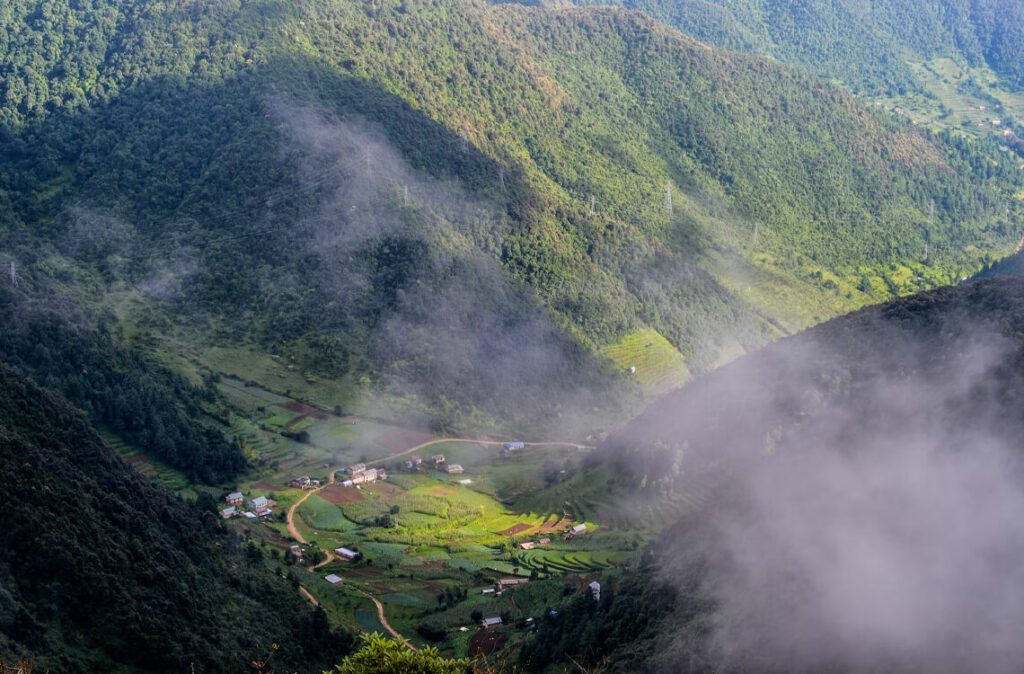
The ancient Chitlang Stone Trail is believed to date back to the Lichhavi period is a testament to the region’s historical significance.
Palung Valley
Located in Nepal’s western Himalayas, the Palung Valley stands as a captivating destination celebrated for its verdant landscapes, winding rivers, and snow-capped peaks. Its remarkable biodiversity and well-preserved indigenous culture enhance its appeal.
Popular: Dhulikhel – Major Attraction Near Kathmandu
Adventurers are drawn to its trails, while those in search of serenity find solace in its tranquil atmosphere. Palung Valley’s commitment to sustainable tourism underscores the importance of conserving its natural beauty and supporting the local community, rendering it a truly enchanting and harmonious retreat.
Chitwan National Park
Located on the outskirts of Makwanpur District, Chitwan National Park showcases Nepal’s vibrant biodiversity. This UNESCO-designated site is a haven for nature enthusiasts and wildlife aficionados. With its dense forests, sprawling grasslands, and winding rivers, the park provides a safe haven for a diverse range of plant and animal species.
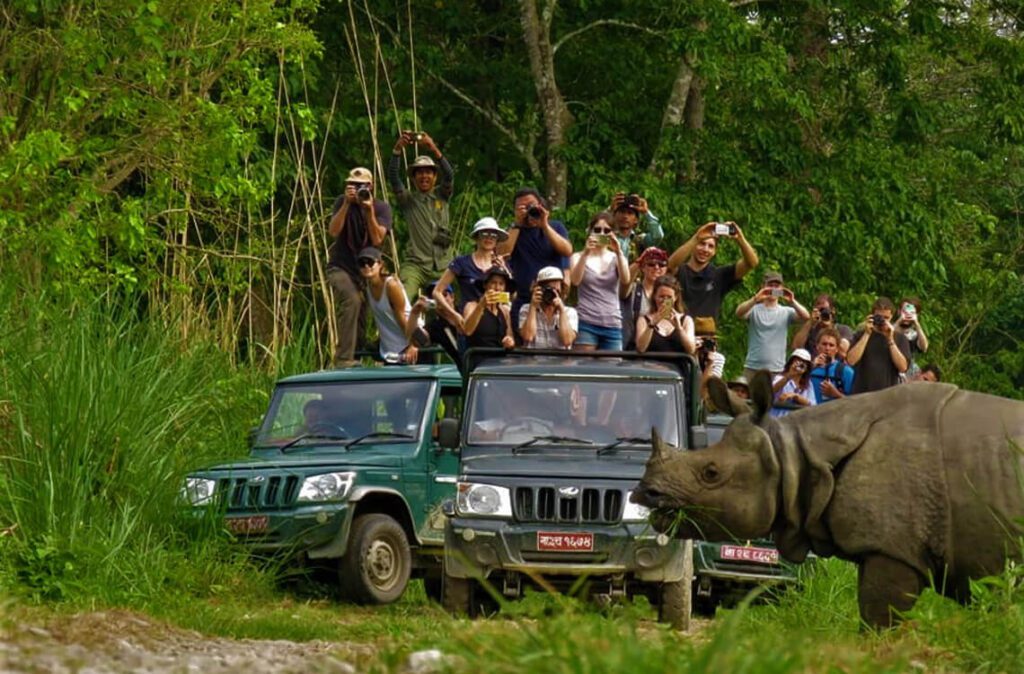
From the iconic Asian one-horned rhinoceros to the enigmatic Bengal tiger, Chitwan National Park offers a unique chance to witness these remarkable creatures in their natural environment. Embarking on an exhilarating safari through the park’s lush landscapes guarantees close encounters with wildlife that will create lasting memories. Amidst the cultural treasures of Makwanpur, Chitwan National Park emerges as a pristine gem, inviting adventurers to experience Nepal’s untamed natural beauty.
Gumba Danda
Gumba Danda in Makwanpur District is a serene hilltop retreat that harmonizes spirituality with stunning natural vistas. Featuring monasteries and stupas, it offers a tranquil space for meditation and introspection, while panoramic views of lush landscapes create an awe–inspiring backdrop.
This spiritual oasis also showcases local cultural richness through intricate architecture and decorations. Accessible for day trips, Gumba Danda provides a unique fusion of inner reflection and external beauty, making it a must-visit for those exploring the charm of Makwanpur.
Martyr Memorial Park
Martyr Memorial Park stands as a solemn tribute within Makwanpur District, commemorating the bravery and sacrifice of Nepal’s heroes who laid down their lives for the nation’s freedom.
More: Sanga – Major Attraction Near Kathmandu
This poignant site serves as a space for reflection and remembrance, honoring the courage and spirit of those who fought for a better future. Through its serene ambiance and historical significance, the park offers visitors a glimpse into Nepal’s patriotic journey and pays homage to the unwavering dedication of its martyrs.
Makwanpur Enigmatic Lifestyle
Let’s take a look into the ethnic groups that call Makwanpur home and get closer to the distinctive lifestyles they lead.
Newars
Newars, one of the predominant ethnic groups in Makwanpur, breathe life into the district’s cultural heritage. Known for their artistry, Newars excel in woodwork, metalcraft, and intricate stone carving. Their settlements are adorned with beautifully designed pagodas, courtyards, and ornate architecture that exude their distinctive craftsmanship.
Tamangs
Tamangs, another significant ethnic community, find their roots in the hills of Makwanpur. Renowned for their resilient spirit, they have embraced agriculture, herding, and handicrafts as integral parts of their lifestyle.

Their intricate jewelry, colorful attire, and vibrant festivals reflect the vividness of their culture.
Indigenous Insights
Makwanpur’s indigenous groups add depth to the district’s ethnic mosaic. The Chepang people, for instance, are known for their unique language and sustainable agricultural practices that harmonize with nature. By blending ancient wisdom with modern sensibilities, these groups showcase a lifestyle deeply interconnected with the land.
Festivals and it’s Culture
Festivals in Makwanpur offer a glimpse into the cultural vibrancy of its ethnic groups. Dashain, Tihar, and Indra Jatra bring communities together, where traditional dances, intricate rituals, and mouthwatering feasts form an integral part of the celebrations. These festivals not only foster unity but also celebrate the district’s diverse ethnic identities.
Traditional Practices and Beliefs
Each ethnic group in Makwanpur brings its unique set of practices and beliefs to the cultural parade. Whether it’s the Newars‘ intricate mandalas, the Tamangs’ vibrant dance forms, or the indigenous people’s connection to nature, these elements intertwine to create a tapestry of tradition that defines the district’s way of life.
Harmonious Coexistence
The beauty of Makwanpur’s ethnic diversity lies in the harmony that prevails. People from various backgrounds coexist, share stories, and learn from one another, creating a living testament to unity in diversity.
Foods in Makwanpur
The captivating landscapes are not the sole attraction in Makwanpur. Its cuisine equally stands out as a highlight. The local cuisine adds an extra layer of excitement and creates lasting memories for your journey.
Newari Delicacies
Makwanpur’s culinary saga intertwines with the Newar community’s gastronomic artistry. Dive into the world of “Yomari,” a delectable dumpling with sweet or savory fillings, reflecting Newar craftsmanship.
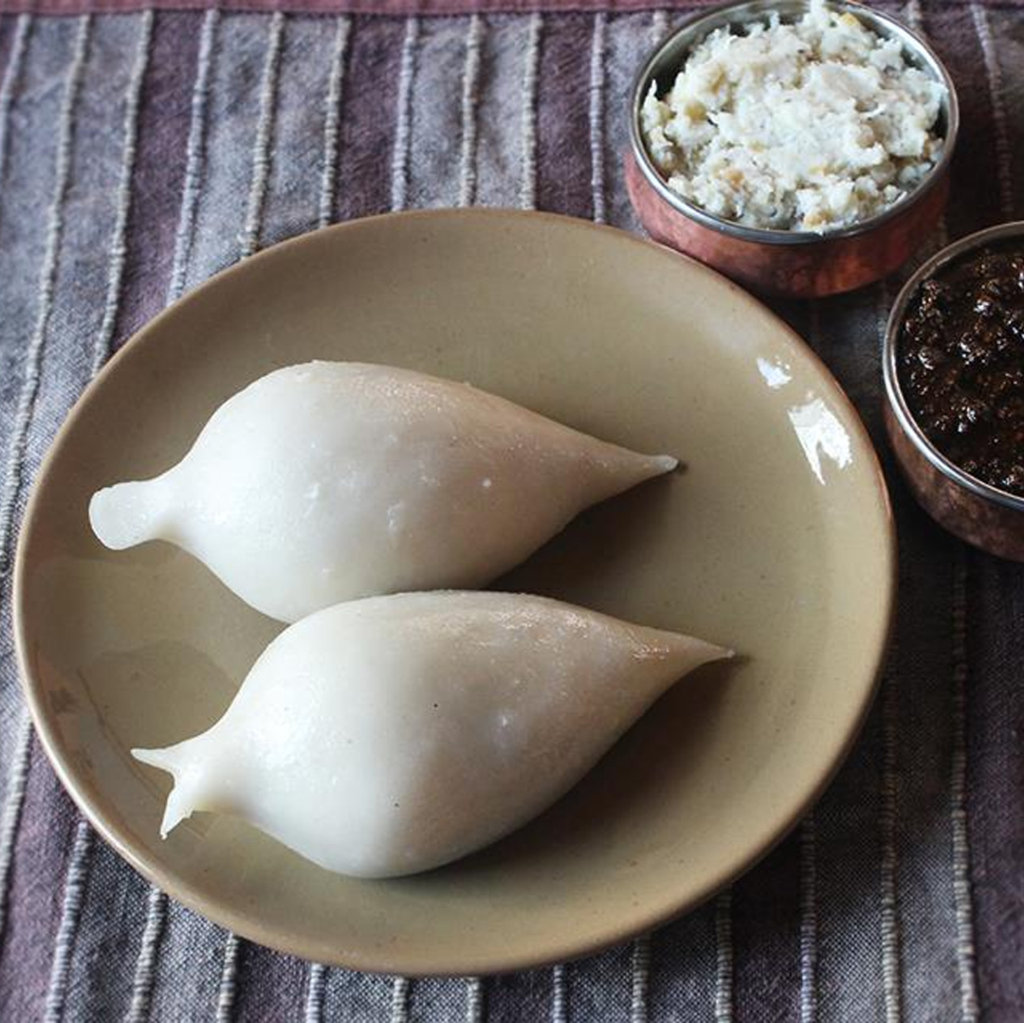
As you savor the crispiness of “Bara,” lentil patties infused with spices, you’ll be transported to the heart of Newari traditions.
Chitlang’s Organic Bounty
Chitlang is a village known for its organic farming practices, elevating the farm-to-table experience to a new level. Explore markets brimming with fresh vegetables, plump fruits, and dairy products that are free from chemicals and rich in authentic flavors. From handpicked produce to farm-fresh dairy, Chitlang offers an edible ode to nature’s bounty.
Indigenous Inspirations
Makwanpur’s cuisine isn’t confined to mainstream influences; it proudly embraces its indigenous roots. “Sel Roti,” a circular rice doughnut, and “Kodo Ko Roti,” made from millet flour, pay homage to traditional methods and local ingredients. These treats are more than just food; they’re a taste of the district’s history.
Street Food Expedition
Makwanpur’s streets buzz with street food that captures the essence of local life. “Sekuwa,” skewers of marinated and grilled meat, are a tantalizing street snack that perfectly pairs with the district’s vibrant atmosphere. Don’t miss the “Phulaura,” a lentil fritter that’s crispy on the outside and irresistibly soft inside.
Traditional Sips
No culinary journey is complete without sipping on traditional beverages. “Raksi,” an indigenous alcoholic drink made from grains, offers a glimpse into local drinking culture. If you’re feeling adventurous, try “Tongba,” a fermented millet-based drink served in a unique wooden container that keeps the warmth intact.
Discovering Hetauda’s Best Seasons
We’ll explore the various seasons in Hetauda, each with its own unique charm, ensuring every traveler has a memorable visit.
Spring: A Burst of Color and Life
Springtime in Hetauda, which spans from March to May, is a visual spectacle that leaves travelers awe-inspired. The city comes alive with a riot of colors as flowers bloom in parks and gardens. Temperatures are moderate, creating a comfortable environment for exploration. The pleasant weather is perfect for wandering through local markets, indulging in street food, and basking in spring’s beauty.
Summer: Embrace the Lush Greenery
From June to August, Hetauda experiences its summer season. While temperatures may rise, the lush landscapes and verdant hills provide a refreshing respite. It’s an ideal time for treks and hikes in the surrounding areas, where nature’s beauty is at its prime. Adventure enthusiasts can take advantage of the clear skies for outdoor activities, and the occasional monsoon shower adds a touch of romance to the atmosphere.
Autumn: The Golden Season
September to November ushers in autumn, a season that showcases Hetauda in its golden glory. The skies are clear, offering unobstructed views of the surrounding hills and landscapes. The comfortable weather allows for exploration of the city’s attractions, such as the serene Triveni Dham and the vibrant local markets. The transition from summer to autumn also offers the chance to witness local festivals and cultural celebrations.
Winter: Cozy and Cultural
The winter months of December to February embrace Hetauda with a cozy ambiance. While temperatures may dip, the city’s cultural spirit remains vibrant. Warm up with cups of local tea and explore the local art and crafts scene. The clear skies make it a great time for sightseeing, and if you’re lucky, you might witness the beauty of snow–capped peaks in the distance.
Festive Times
Consider planning your visit around Hetauda’s festivals to truly immerse yourself in local culture. Dashain, Tihar, and Indra Jatra are just a few of the celebrations that bring the city to life with vibrant colors, traditional dances, and a festive atmosphere.
Let our expert team at Asian Heritage Treks and Travel take care of everything — from guided tours to personalized packing tips and travel arrangements.
Plan an exciting trip




